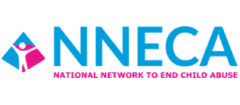CURRICULUM
CURRICULUM
Because we know that 90 percent of sexual abuse is preventable through education and awareness, NNECA offers comprehensive in-school curriculum that teaches children, teachers and parents the necessary tools to keep children safe. To learn more about this program make contact with our education department, [email protected]
Our Lower School Curriculum follows a developmentally appropriate sequence of instruction for each grade level of a KS1 student. Each grade level’s theme focuses on developing skills for staying safe, as it relates to the expansion of a child’s world. This curriculum includes videos, in-classroom activities and parent education materials.
Our Middle School Curriculum teaches students how to recognise danger and how to use their personal power to say “no,” get help, and set boundaries. Middle school students learn about the warning signs of unsafe situations and what actions they can take to reduce risks, stay safe, and access help.
Our High School Curriculum addresses personal safety and the balance of power in relationships and topics such as sexual abuse, sexual harassment, and dating violence. This curriculum will empower students to know what to do in an unsafe situation, who to turn to for help, and how to help a friend in need.
Our Special Needs Curriculum incorporates visual aids to educate children about the importance of body boundaries and personal safety, and encourages children to develop a group of trusted adults with whom they can share things that make them feel uncomfortable. The framework is designed to create a cooperative environment for parents and teachers to create a learning plan so that each child, no matter his or her need, can receive a developmentally appropriate abuse prevention education. The framework integrates with current autism models and focuses on children recognising facial cues and situational circumstances to determine what action they should take to protect themselves.

 Report Abuse Now
Report Abuse Now